What to know about renting out your home as an Airbnb in Germany
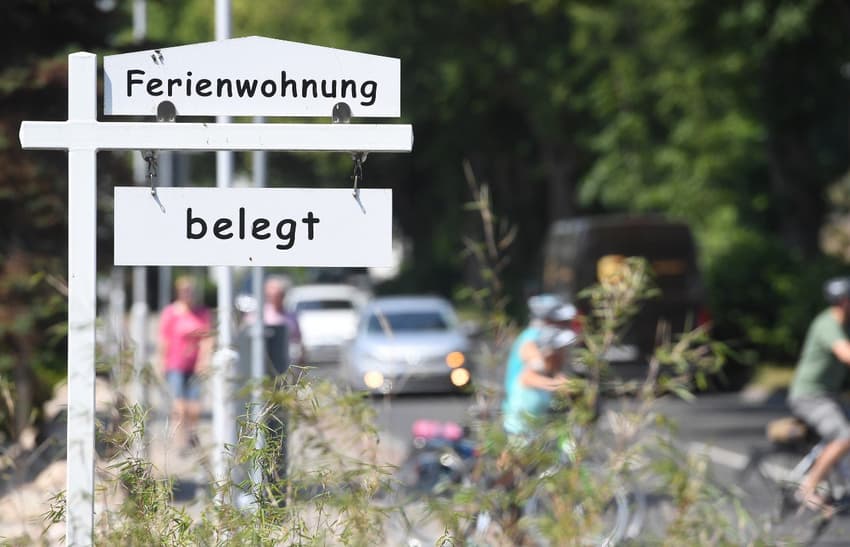
Many home owners - and even some renters - have considered bringing in some extra cash by listing their property on Airbnb. But the rules in Germany are complex and can vary depending on where you live. Here's what you need to know.
Looking to move? Find your next rental apartment here.
It can sound like an ideal side gig: renting out a spare room in your flat as a holiday home on Airbnb. You can meet new people and even subsidise your rent or the cost of your mortgage - theoretically without doing too much work for the money.
But if you're considering getting into Airbnb in Germany, it's important to get abreast of the rules before you do so. Even though there isn't a blanket ban, many states and cities have put strict guidelines in place to keep it under control.
Why? Because, as many well know, Germany is in the grip of a serious housing crisis right now. Living space is desperately sought-after for people who live here, and short-term holiday lets are believed to be part of the problem.
This was borne out by a 2021 study by the German Institute for Economic Research that looked at the impact of Airbnb properties on rental prices in Berlin.
The institute found that rents increased by an average of 13 percent if they were in the immediate vicinity of an Airbnb property - largely because the housing stock in these areas had decreased.
In Mitte, prices went up by around 8 cents per metre, but in the more residential district of Lichtenberg, they shot up by 43 cents per square metre. In Neukölln - a trendy area that has been heavily gentrified in recent years - rents were being pushed up by 10 cents per square metre by the presence of Airbnb.
READ ALSO: Airbnb drives up rents in Berlin, new study finds
Of course, none of this means that it's impossible to start renting out your home for a bit of extra cash - but depending on where you live, it may be a lot more difficult. Here's what to know about the general rules in Germany and the specific guidelines in the major cities and states.
Germany-wide rules
Back in September 2020, the European Court of Justice (ECJ) made a key decision that ultimately empowered governments to ban Airbnb in places where housing was severely limited.
However, this is a tiny bit more complex than it first appears, since the primary issue isn't Airbnb itself but rather short-term rentals that turn residential homes into holiday lets.
If properties change use in this way, this is likely to be branded "misappropriation of living space" - i.e. unlawfully using properties in a way that differs from their original purpose.
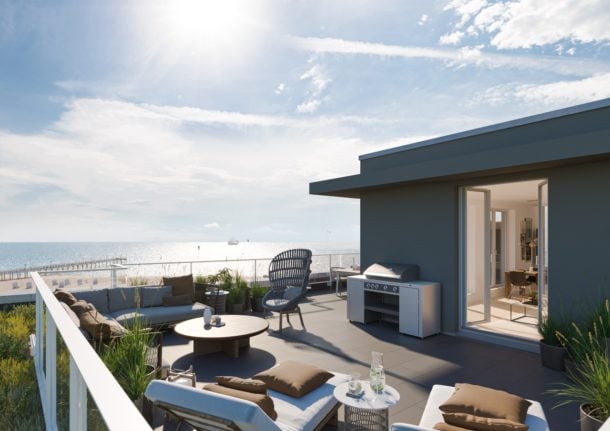
A coastal holiday home in Schleswig-Holstein. Photo: picture alliance/dpa/lichtecht | lichtecht
In some cases, getting a permit or renting a property for more long-term stays may be a way around this, but if you do fall afoul of the rules in places like Berlin or Munich, you can expect fines of anywhere between €50,000 and €500,000.
Another key thing to note is that landlords in general are subject to some strict regulations, including - but certainly not limited to - health and safety requirements and declaring taxable income.
Airbnb has put together a guide in English that can help you familiarise yourself with some of these rules, and they also offer webinars in English and German that will take you through the taxation system.
In most cases, subletting all or part of your rental flat on Airbnb is unlikely to be allowed. If in doubt, always check with your landlord or letting agent to see what's permitted and what isn't.
Rules in cities and federal states
Bavaria
Bavaria is one of the most popular holiday destinations in Germany - and its capital, Munich, also happens to have the most expensive rental market in the country - so it's no surprise that there are tough rules here when it comes to Airbnb.
In general, the state prohibits the misuse of living space, and people who break these rules can face eyewatering fines of up to €500,000.
Munich has similar rules in place, though it is possible to apply for a permit to change your home into a holiday rental. These can take around 12 months to obtain and the decision is based on whether re-purposing the property is in the public interest.
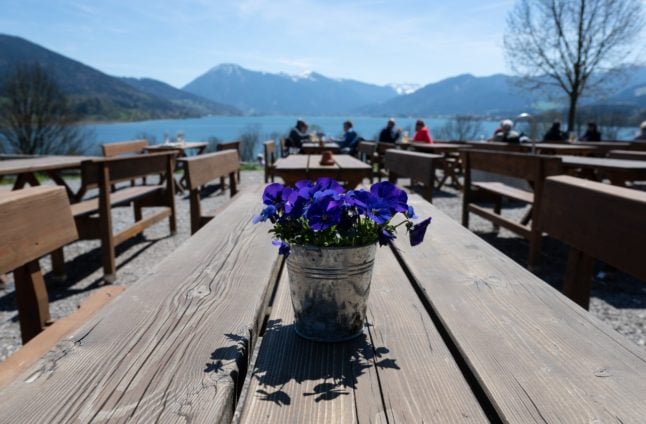
A view over Tegernsee, a popular summer vacation spot in Bavaria. Photo: picture alliance/dpa | Sven Hoppe
There are a few exceptions, though. If you live in a large house, for example, renting out a room on Airbnb is theoretically doable, since the rules state that no more than 50 percent of the home can be used for non-residential purposes. You're also entitled to rent out your entire property for up to eight weeks of the year without getting permission from local authorities.
Baden-Württemberg
Since February 2021, the southwestern state of Baden-Württemberg has been clamping down on misappropriation of living space. If you're found to be renting out a property illegally, you could be hit with a fine of up to €100,000.
In Stuttgart, strict regulations have been in place since July 2021. The rules stipulate that anyone who wants to rent out their home on a short-term basis has to apply for a registration number and include it on their listing. If less than 50 percent of the living space is being listed, it can be rented out as often as you like, but if more than 50 percent of the home is being repurposed then you can only rent this space for up to 10 weeks per year.
If you want to rent out an entire home on Airbnb for longer periods of time, you'll have to apply for a permit from the city authorities.
Berlin
In recent years, Berlin's housing market has become notorious for its dire shortage of living space and endlessly rising rents - and there have been several attempts to get illegal Airbnb listings under control.
Most recently, the city state introduced a registration system for anyone wanting to rent out part of their home as a short-term holiday let. If less than half of the property is set to be rented out, you'll need to notify the relevant district authority of your plans and get a registration number that you include anywhere you advertise the property (in the case, an Airbnb listing).
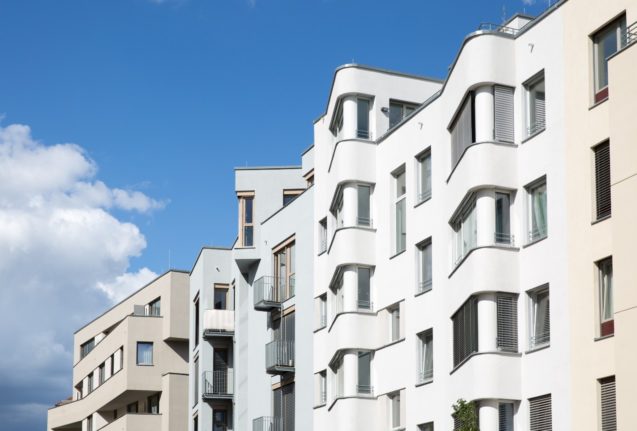
Blocks of flats in the German capital of Berlin. Photo: picture alliance/dpa | Florian Schuh
If you want to rent out more than half of your home, a permit will be required. Fines of up to €250,000 are levied on people found to be breaking the law.
The rules do vary slightly depending on whether the property you rent out is your primary or secondary residence. If you live in the flat, you're entitled to rent it out during periods of absence (i.e. when you yourself are travelling) as long as you aren't changing the main function of the home.
For properties you own but don't live in, renting them out as holiday homes is permissible - but only for a maximum of 90 days per year.
Frankfurt am Main
Frankfurt am Main has been battling its own housing shortages for many years, and its fight against Airbnb culminated in a 2018 bill regulating holiday homes.
This bill stipulates that people must apply for permission if they want to offer their home as a short-term holiday rental, and that this can only be done for a maximum of eight weeks per year.
Breaching these rules can result in fines worth tens of thousands of euros.
READ ALSO: Can a flat swap help me find a new apartment in Germany?
Hamburg
Much like other major cities in Germany, the city state of Hamburg has implemented a registration system to help it monitor the number of holiday homes being listed on sites like Airbnb.
The good news is that applying for a registration number is pretty easy to do online - and it doesn't cost any money to do so.
That said, there are still strict rules in Hamburg against the misappropriation of living space, so there are quite a few restrictions about what you can do. Generally, renting out a spare room would be acceptable, or renting out a larger portion of the home for eight weeks or less per year.
Lower Saxony
When it comes to Airbnb in Lower Saxony, a lot depends on the area you live in and how desperate the housing situation is.
In popular areas and holiday destinations like Lüneburg, Göttingen, and the island of Norderney, there's a ban on the misuse of residential space and you'll likely need to seek the advice or a permit from your local authority in order to rent out a holiday home.
READ ALSO: EXPLAINED: How to sublet your apartment in Germany
Mecklenburg Western-Pomerania
While Mecklenburg Western-Pomerania isn't Germany's most populous state, living space in the popular coastal resorts is increasingly scarce, which drove state authorities to pass a misappropriation law back in 2021.
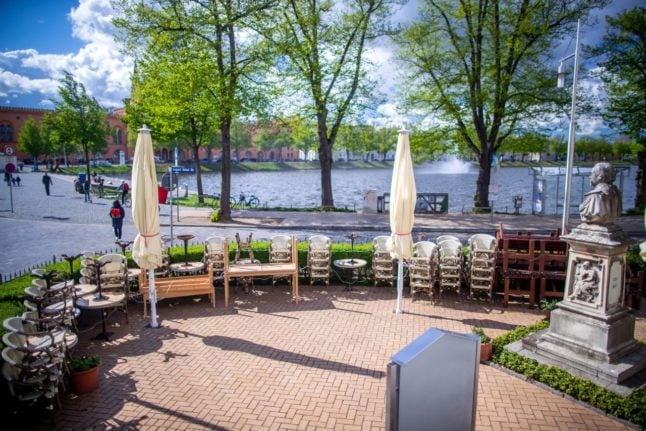
A cafe in Schwerin, Mecklenburg Western-Pomerania, which is popular with tourists. Photo: picture alliance/dpa/dpa-Zentralbild | Jens Büttner
That means that short-term holiday lets are highly restricted and you will need to seek permission to change the use of a property.
North Rhine-Westphalia
To rent out property to tourists in NRW, you now need to get a special ID number that you will have to use in any listings for your apartment online.
In cities like Cologne and Düsseldorf, there are strict bans on renting out properties on a short-term basis as a means of making higher profit. Both cities have recently invested in more staff to check compliance with the rules, and fines of up to €50,000 are levied on people who break the rules (though Cologne is considering hiking this to €500,000).
One way to rent out a flat while staying above board is therefore to offer it on a much more long-term basis, but be sure to liaise with authorities or get legal advice before you do so.
READ ALSO: Six confusing things about renting a flat in Germany
Rhineland-Palatinate, Saxony, Schleswig-Holstein and Thuringia
These above four states have all introduced bans on the misappropriation of living space, meaning ultra short-term holiday lets are affectively banned, though longer-term rentals are potentially allowed.
Comments (1)
See Also
It can sound like an ideal side gig: renting out a spare room in your flat as a holiday home on Airbnb. You can meet new people and even subsidise your rent or the cost of your mortgage - theoretically without doing too much work for the money.
But if you're considering getting into Airbnb in Germany, it's important to get abreast of the rules before you do so. Even though there isn't a blanket ban, many states and cities have put strict guidelines in place to keep it under control.
Why? Because, as many well know, Germany is in the grip of a serious housing crisis right now. Living space is desperately sought-after for people who live here, and short-term holiday lets are believed to be part of the problem.
This was borne out by a 2021 study by the German Institute for Economic Research that looked at the impact of Airbnb properties on rental prices in Berlin.
The institute found that rents increased by an average of 13 percent if they were in the immediate vicinity of an Airbnb property - largely because the housing stock in these areas had decreased.
In Mitte, prices went up by around 8 cents per metre, but in the more residential district of Lichtenberg, they shot up by 43 cents per square metre. In Neukölln - a trendy area that has been heavily gentrified in recent years - rents were being pushed up by 10 cents per square metre by the presence of Airbnb.
READ ALSO: Airbnb drives up rents in Berlin, new study finds
Of course, none of this means that it's impossible to start renting out your home for a bit of extra cash - but depending on where you live, it may be a lot more difficult. Here's what to know about the general rules in Germany and the specific guidelines in the major cities and states.
Germany-wide rules
Back in September 2020, the European Court of Justice (ECJ) made a key decision that ultimately empowered governments to ban Airbnb in places where housing was severely limited.
However, this is a tiny bit more complex than it first appears, since the primary issue isn't Airbnb itself but rather short-term rentals that turn residential homes into holiday lets.
If properties change use in this way, this is likely to be branded "misappropriation of living space" - i.e. unlawfully using properties in a way that differs from their original purpose.

In some cases, getting a permit or renting a property for more long-term stays may be a way around this, but if you do fall afoul of the rules in places like Berlin or Munich, you can expect fines of anywhere between €50,000 and €500,000.
Another key thing to note is that landlords in general are subject to some strict regulations, including - but certainly not limited to - health and safety requirements and declaring taxable income.
Airbnb has put together a guide in English that can help you familiarise yourself with some of these rules, and they also offer webinars in English and German that will take you through the taxation system.
In most cases, subletting all or part of your rental flat on Airbnb is unlikely to be allowed. If in doubt, always check with your landlord or letting agent to see what's permitted and what isn't.
Rules in cities and federal states
Bavaria
Bavaria is one of the most popular holiday destinations in Germany - and its capital, Munich, also happens to have the most expensive rental market in the country - so it's no surprise that there are tough rules here when it comes to Airbnb.
In general, the state prohibits the misuse of living space, and people who break these rules can face eyewatering fines of up to €500,000.
Munich has similar rules in place, though it is possible to apply for a permit to change your home into a holiday rental. These can take around 12 months to obtain and the decision is based on whether re-purposing the property is in the public interest.

There are a few exceptions, though. If you live in a large house, for example, renting out a room on Airbnb is theoretically doable, since the rules state that no more than 50 percent of the home can be used for non-residential purposes. You're also entitled to rent out your entire property for up to eight weeks of the year without getting permission from local authorities.
Baden-Württemberg
Since February 2021, the southwestern state of Baden-Württemberg has been clamping down on misappropriation of living space. If you're found to be renting out a property illegally, you could be hit with a fine of up to €100,000.
In Stuttgart, strict regulations have been in place since July 2021. The rules stipulate that anyone who wants to rent out their home on a short-term basis has to apply for a registration number and include it on their listing. If less than 50 percent of the living space is being listed, it can be rented out as often as you like, but if more than 50 percent of the home is being repurposed then you can only rent this space for up to 10 weeks per year.
If you want to rent out an entire home on Airbnb for longer periods of time, you'll have to apply for a permit from the city authorities.
Berlin
In recent years, Berlin's housing market has become notorious for its dire shortage of living space and endlessly rising rents - and there have been several attempts to get illegal Airbnb listings under control.
Most recently, the city state introduced a registration system for anyone wanting to rent out part of their home as a short-term holiday let. If less than half of the property is set to be rented out, you'll need to notify the relevant district authority of your plans and get a registration number that you include anywhere you advertise the property (in the case, an Airbnb listing).

If you want to rent out more than half of your home, a permit will be required. Fines of up to €250,000 are levied on people found to be breaking the law.
The rules do vary slightly depending on whether the property you rent out is your primary or secondary residence. If you live in the flat, you're entitled to rent it out during periods of absence (i.e. when you yourself are travelling) as long as you aren't changing the main function of the home.
For properties you own but don't live in, renting them out as holiday homes is permissible - but only for a maximum of 90 days per year.
Frankfurt am Main
Frankfurt am Main has been battling its own housing shortages for many years, and its fight against Airbnb culminated in a 2018 bill regulating holiday homes.
This bill stipulates that people must apply for permission if they want to offer their home as a short-term holiday rental, and that this can only be done for a maximum of eight weeks per year.
Breaching these rules can result in fines worth tens of thousands of euros.
READ ALSO: Can a flat swap help me find a new apartment in Germany?
Hamburg
Much like other major cities in Germany, the city state of Hamburg has implemented a registration system to help it monitor the number of holiday homes being listed on sites like Airbnb.
The good news is that applying for a registration number is pretty easy to do online - and it doesn't cost any money to do so.
That said, there are still strict rules in Hamburg against the misappropriation of living space, so there are quite a few restrictions about what you can do. Generally, renting out a spare room would be acceptable, or renting out a larger portion of the home for eight weeks or less per year.
Lower Saxony
When it comes to Airbnb in Lower Saxony, a lot depends on the area you live in and how desperate the housing situation is.
In popular areas and holiday destinations like Lüneburg, Göttingen, and the island of Norderney, there's a ban on the misuse of residential space and you'll likely need to seek the advice or a permit from your local authority in order to rent out a holiday home.
READ ALSO: EXPLAINED: How to sublet your apartment in Germany
Mecklenburg Western-Pomerania
While Mecklenburg Western-Pomerania isn't Germany's most populous state, living space in the popular coastal resorts is increasingly scarce, which drove state authorities to pass a misappropriation law back in 2021.

That means that short-term holiday lets are highly restricted and you will need to seek permission to change the use of a property.
North Rhine-Westphalia
To rent out property to tourists in NRW, you now need to get a special ID number that you will have to use in any listings for your apartment online.
In cities like Cologne and Düsseldorf, there are strict bans on renting out properties on a short-term basis as a means of making higher profit. Both cities have recently invested in more staff to check compliance with the rules, and fines of up to €50,000 are levied on people who break the rules (though Cologne is considering hiking this to €500,000).
One way to rent out a flat while staying above board is therefore to offer it on a much more long-term basis, but be sure to liaise with authorities or get legal advice before you do so.
READ ALSO: Six confusing things about renting a flat in Germany
Rhineland-Palatinate, Saxony, Schleswig-Holstein and Thuringia
These above four states have all introduced bans on the misappropriation of living space, meaning ultra short-term holiday lets are affectively banned, though longer-term rentals are potentially allowed.
Join the conversation in our comments section below. Share your own views and experience and if you have a question or suggestion for our journalists then email us at [email protected].
Please keep comments civil, constructive and on topic – and make sure to read our terms of use before getting involved.
Please log in here to leave a comment.